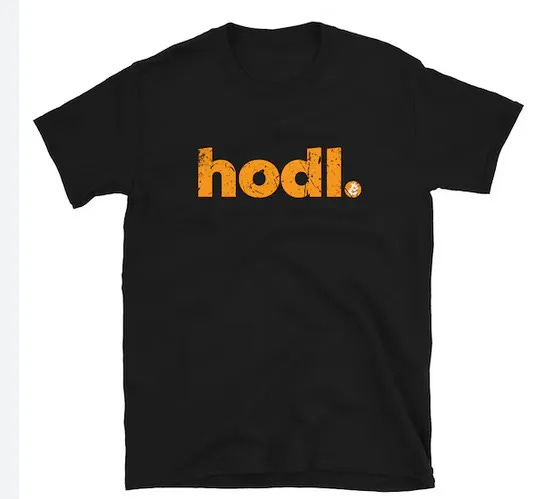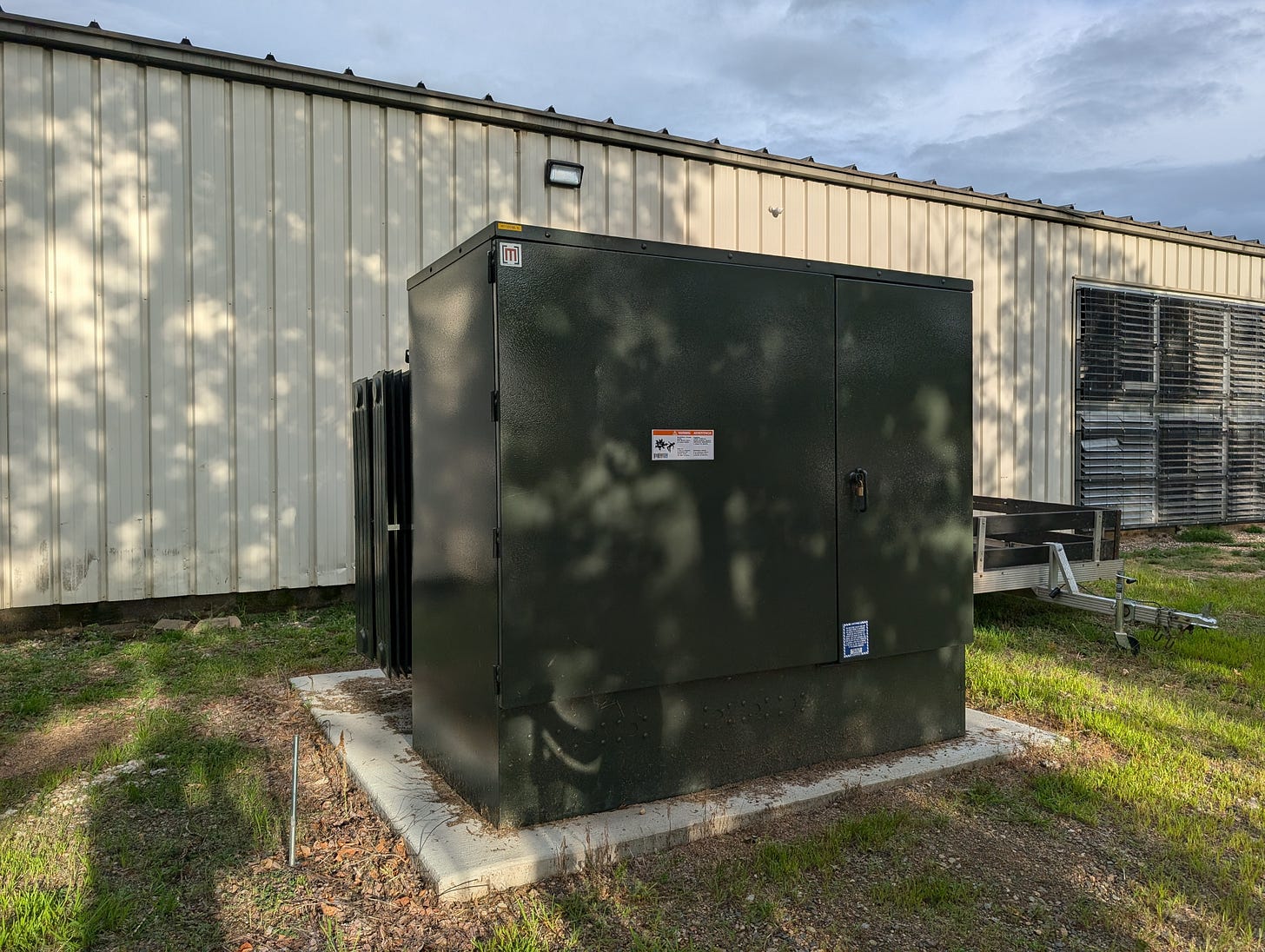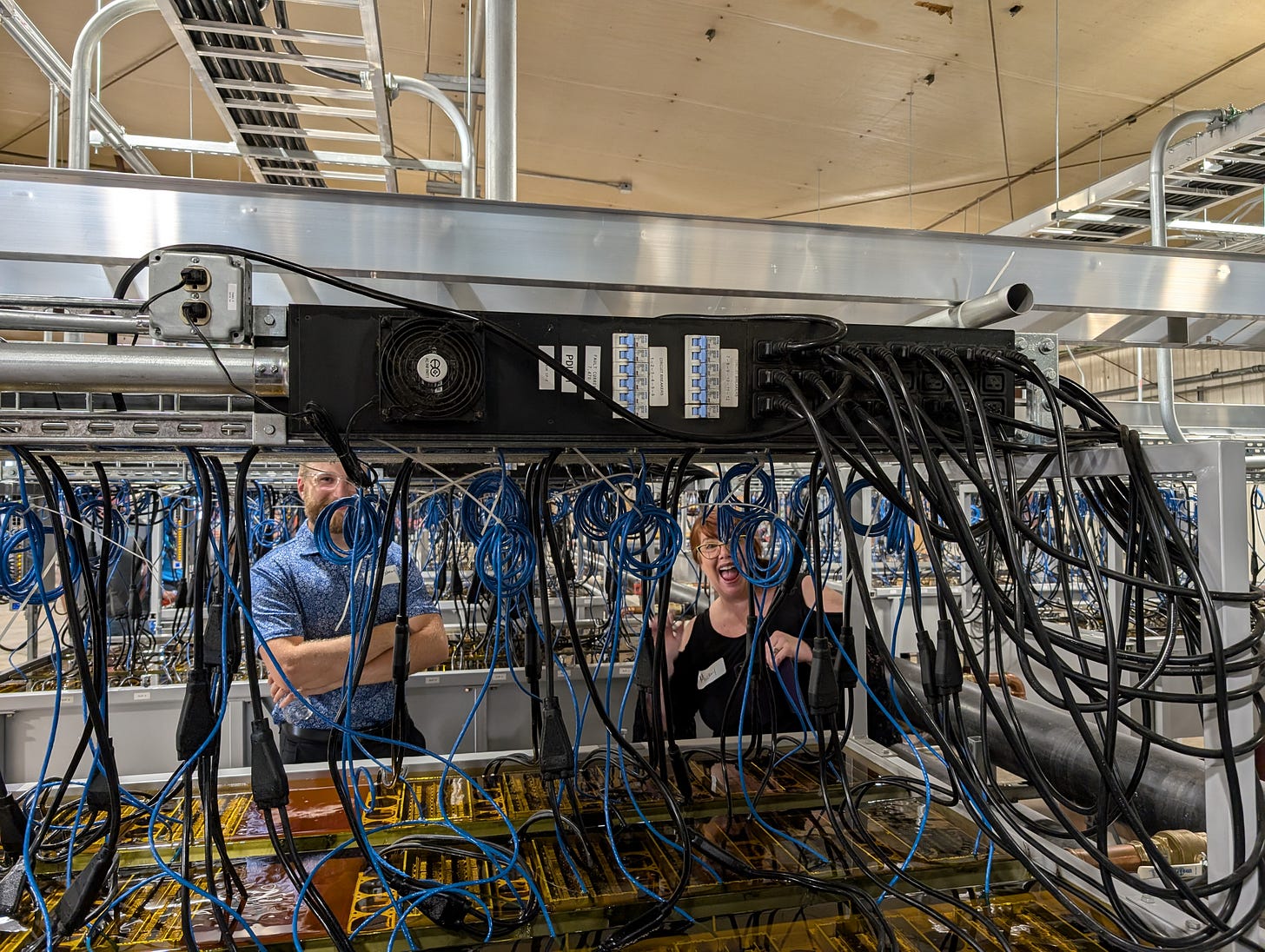Digital Gold Rush: Minnesota Bitcoin Miners Risk it for the Biscuit
Entrepreneurs turn spare power into profits in the quest for financial freedom
In August I met up with Minnesota Blockchain Initiative for a field trip to the biggest Bitcoin mine in the state. We packed a cooler full of White Claws into a party bus and headed out to Brainerd.1
Crypto-Currency: The Modern Gold Rush
Bitcoin is a digital asset built using open source cryptographic protocols. It’s built on the premise that modern central bank currencies, known as fiat money, depreciate in value over time due to inflation. The Bitcoin computer network positions itself as a long-term store of value like gold.
The term mining refers to how transactions are validated with blockchain technology. Bitcoin uses proof-of-work. This means computers on the network solve complex mathematical problems to establish consensus of the state of the blockchain. 2
The owner of the Just for Krypto mine, Steve, is a serial entrepreneur. He and his wife Cindy originally founded Just for Kix in 1981. This is a youth dance program that blend choreography, costumes, and an exciting team-centric format for kids to learn dancing and life skills.3
As Bitcoin rocketed in price against fiat currencies, Steve and his team invested in mining. A hobby project with his buddies at home exploded into the biggest mining facility in the state. Steve continued the successful J4K branding with Just For Krypto.4
Another project Steve runs is a custom apparel shop called The Tee Hive. They provided us with some free shirts on our way out and sell Bitcoin merchandise on the Just For Krypto page. 5
I had a great time visiting the J4K mine. I had been working on energy software for the previous eight years. This was my first time seeing high power electrical equipment like transformers out in the field.
The owner and staff showed incredible enthusiasm towards their craft. I felt inspired by them showing off their operation with pride.
Libertarians Yearn for the Mines
Gold and silver are appealing assets to many libertarians. Gold and silver started being used as money around 600 BCE. In the 20th century, western countries abandoned the gold standard in favor of fiat currency. Fiat cannot be redeemed for precious metals.6
The maligned Richard Nixon administration officially ended the Bretton Woods system in 1976. This was known as the “gold exchange standard”. Since then the value of the dollar has plummeted. This is reflected in the price of gold measured in dollars steadily rising.
The real effect is that the standard of living for working and middle class Americans no longer rises as rapidly as it did during the 19th century.
Inflation is an insidious tax used by the political class to rob people of their purchasing power. My previous post highlights the value of cash-flowing assets in today’s inflationary landscape.
C.R.E.A.M: Cash Rules Everything Around Me
You are likely well aware of the problems with our fiat money standard. The Federal Reserve is a monopoly banking cartel. It is a for-profit business with no legal competition.
Gold can be mined out of the ground and turned into jewelry. Aside from the rare gold rush, the supply of gold is relatively stable. Central banks can create any amount of fiat currency they want. This is why the value of gold in fiat terms tends to appreciate.
Libertarians love to continue the hard money tradition. We see owning and trading in gold and silver as a way to stick it to the central banks and politicians.
Bitcoin similarly aims to appreciate in value similarly to gold. There is a cap of 21 million Bitcoins that can ever be mined. Every four years there is a “halving event”, where the block rewards to miners is cut in half. This last occurred in April 2024 and reduced the supply of new coins entering the market.
Bitcoin is less accepted than gold in libertarian circles. Many tech enthusiasts love it. Others are terrified of digital currencies. There are alternative blockchains with their own fanbases. Ethereum emphasizes usability in decentralized applications (dApps). Monero promises to keep transactions private.
Challenges and Controversies
A quick Brave search shows many different perspectives on Bitcoin and digital currencies:
There is a power struggle inside the network among developers and investors. Some factions want to make it easier for transactions. Others seek to protect its purchasing power. Bitcoin is designed to be resilient against takeover, but time will tell.
Alternative crypto-currencies like Ethereum or Solana are rising up and grabbing market share.
The comparative lack of regulation in the blockchain space can be an asset or a concern depending on your perspective. People have won big on crypto-currency. Others lost their fortunes in scams like the FTX collapse.
There is debate whether blockchain tokens should be regulated as securities by the SEC, or as commodities by the CFTC. This power struggle between regulatory agencies is a hindrance to using blockchain tokens in business.
Local citizens are often concerned about noise pollution and energy consumption when a crypto mine opens in their neighborhood.
Blockchain enthusiasts have a lot of work to do to win people over to adopt this new technology.
Ze Future of Money?
I will briefly rebut some of these concerns. Please share your beliefs in the comments and let me know if you want to chat about it further.
Yes, Bitcoin uses a lot of energy. Even more than Amazon! But remember this is a new form of money, so let’s compare apples to apples. The Bitcoin network uses about half as much energy as the modern banking system and the gold industry.7
Because blockchain mining consumes so much energy, mining operations have a strong incentive to use the lowest cost, most efficient energy sources. These are often renewables.8
For example, Just for Krypto uses web scraping to pull electricity price data from the Midwest energy exchange website. The mine automagically shuts down when electricity costs are higher than the forecasted revenue. This helps stabilize the power grid and energy prices. In Minnesota, much of the power is pulled from wind farms in South Dakota.
Regulation is seriously important. Being cavalier about compliance is funny until you land in jail or worse. I’m hopeful that blockchain policy is regulated fairly and clearly in the next few years. If not, I fear other countries will surpass the United States as technological innovators.
Secure Your Digital Assets
As a serious crypto investor, you need to keep your assets secure. Yeah, you can get an ETF in your investment account, or keep your crypto on an exchange. But who really owns the asset when shit hits the fan?
Ledger provides a line of digital hardware wallets. These let you take custody of your digital assets. Take security into your own hands today and get a bonus $20 in Bitcoin!









Thanks for this rundown of your visit. I appreciate it also within the context of your historical look at bitcoin.